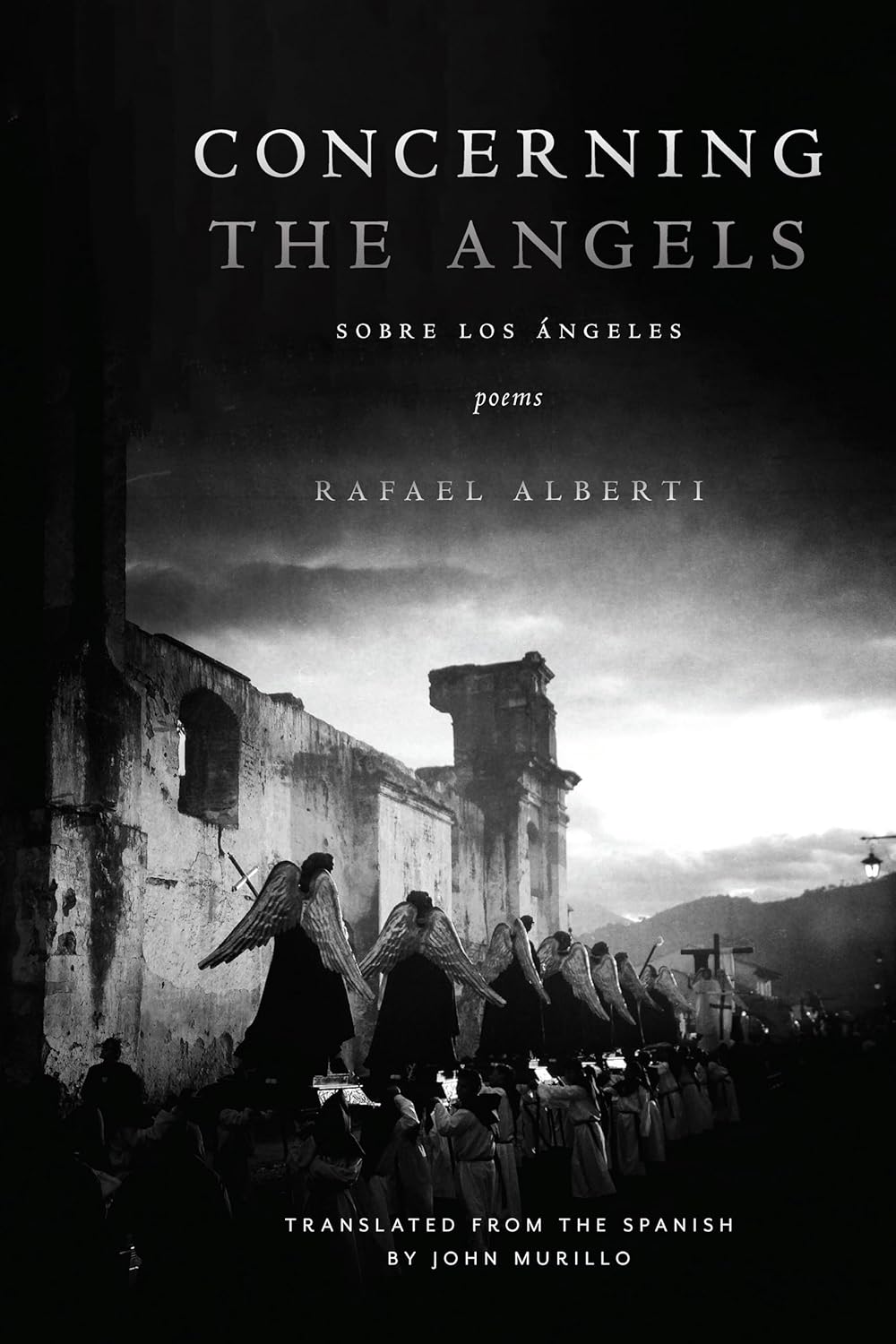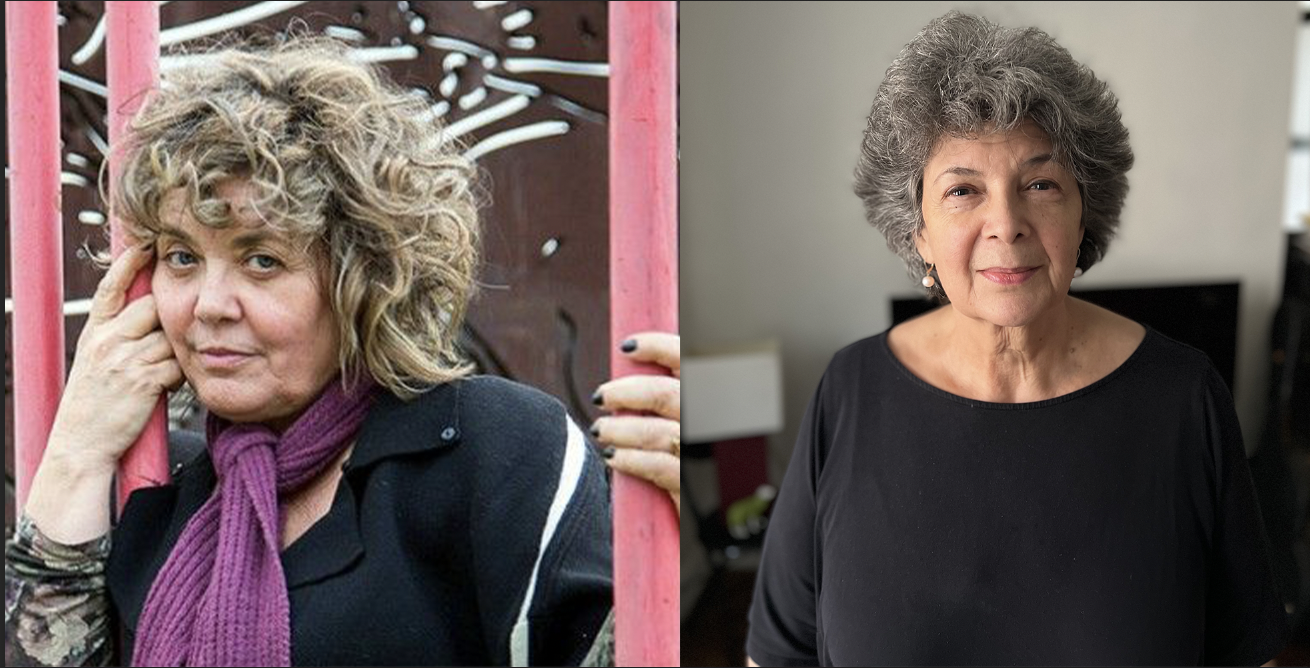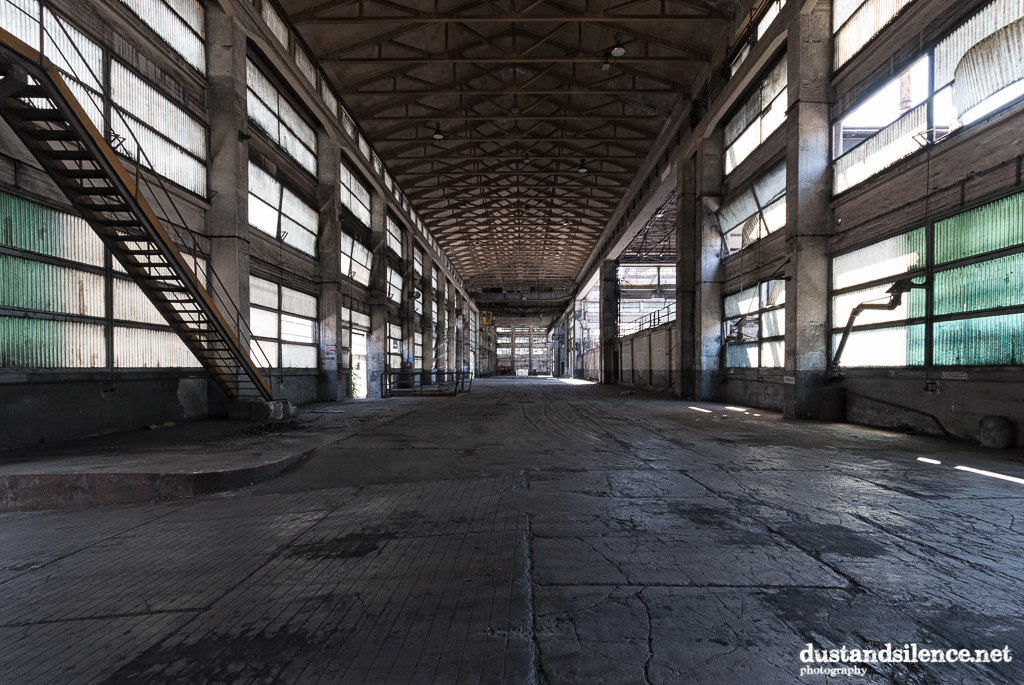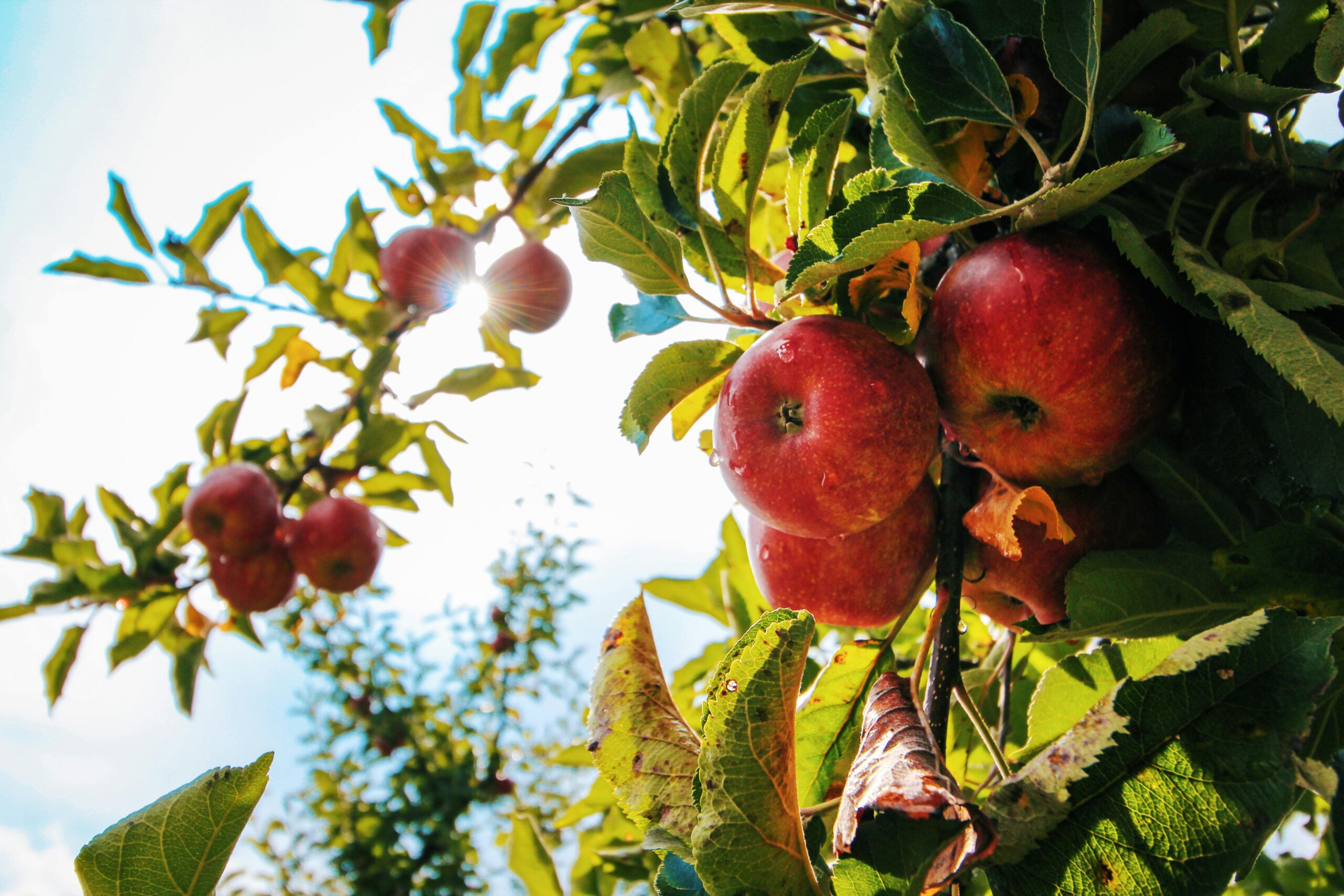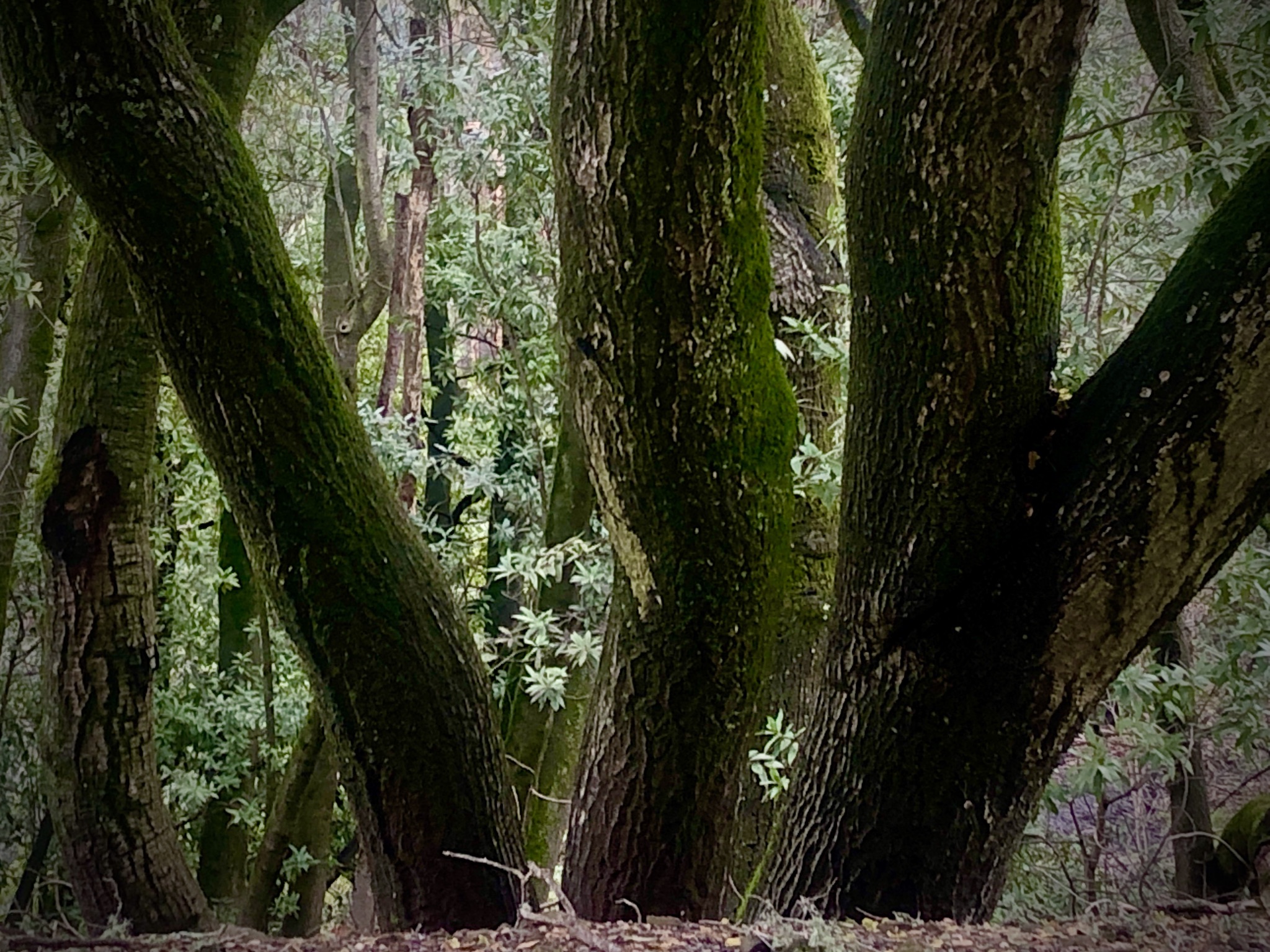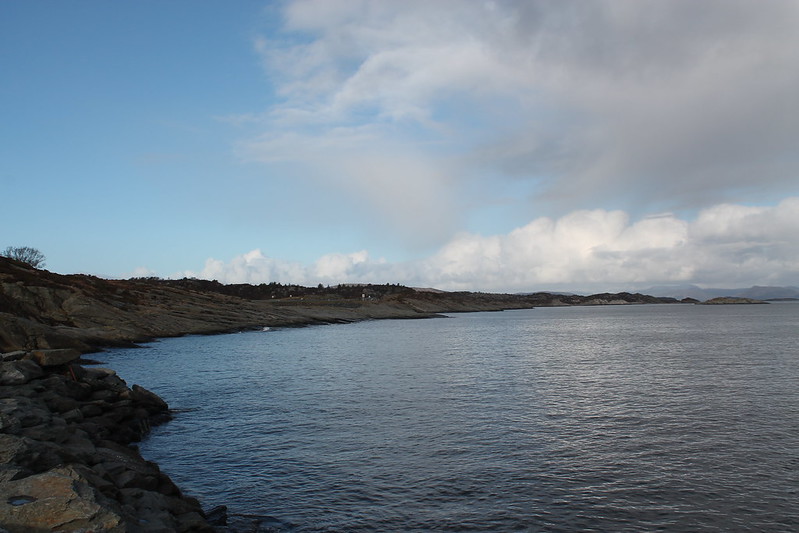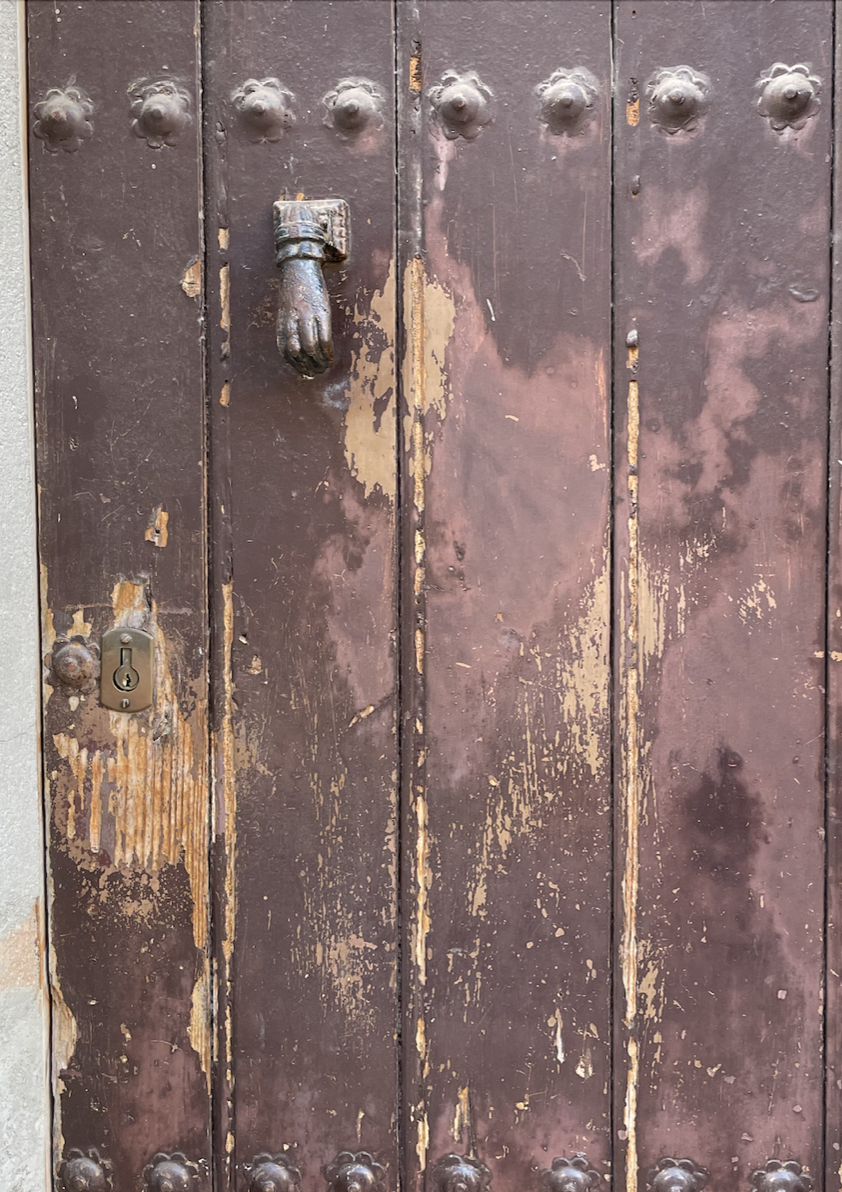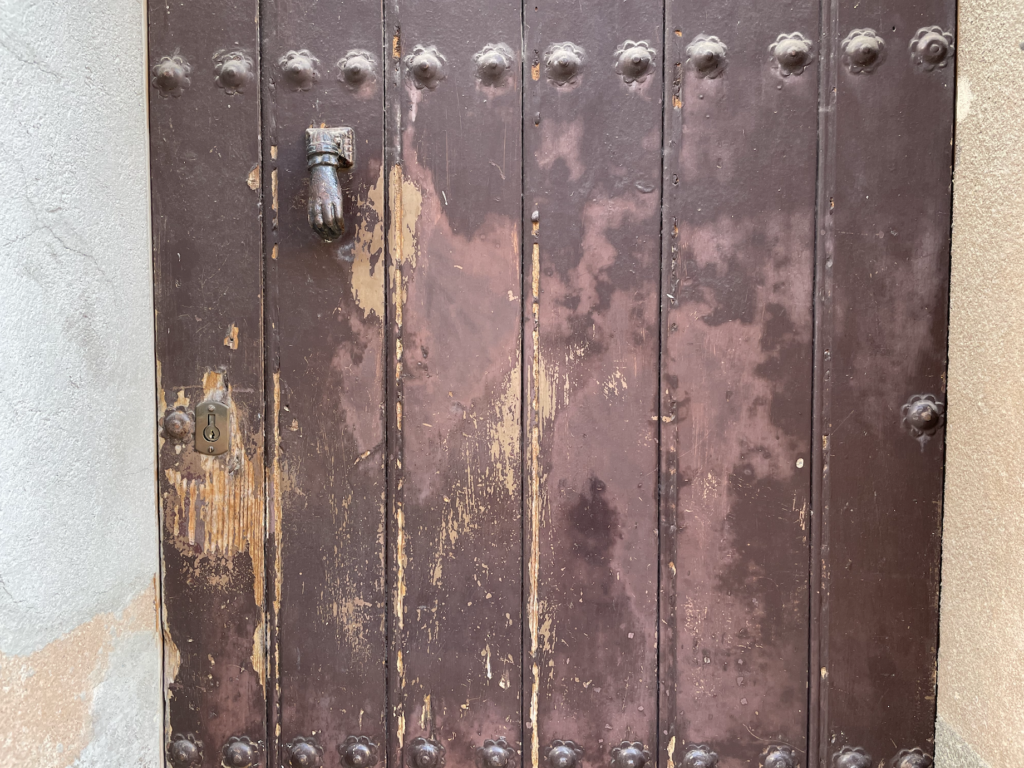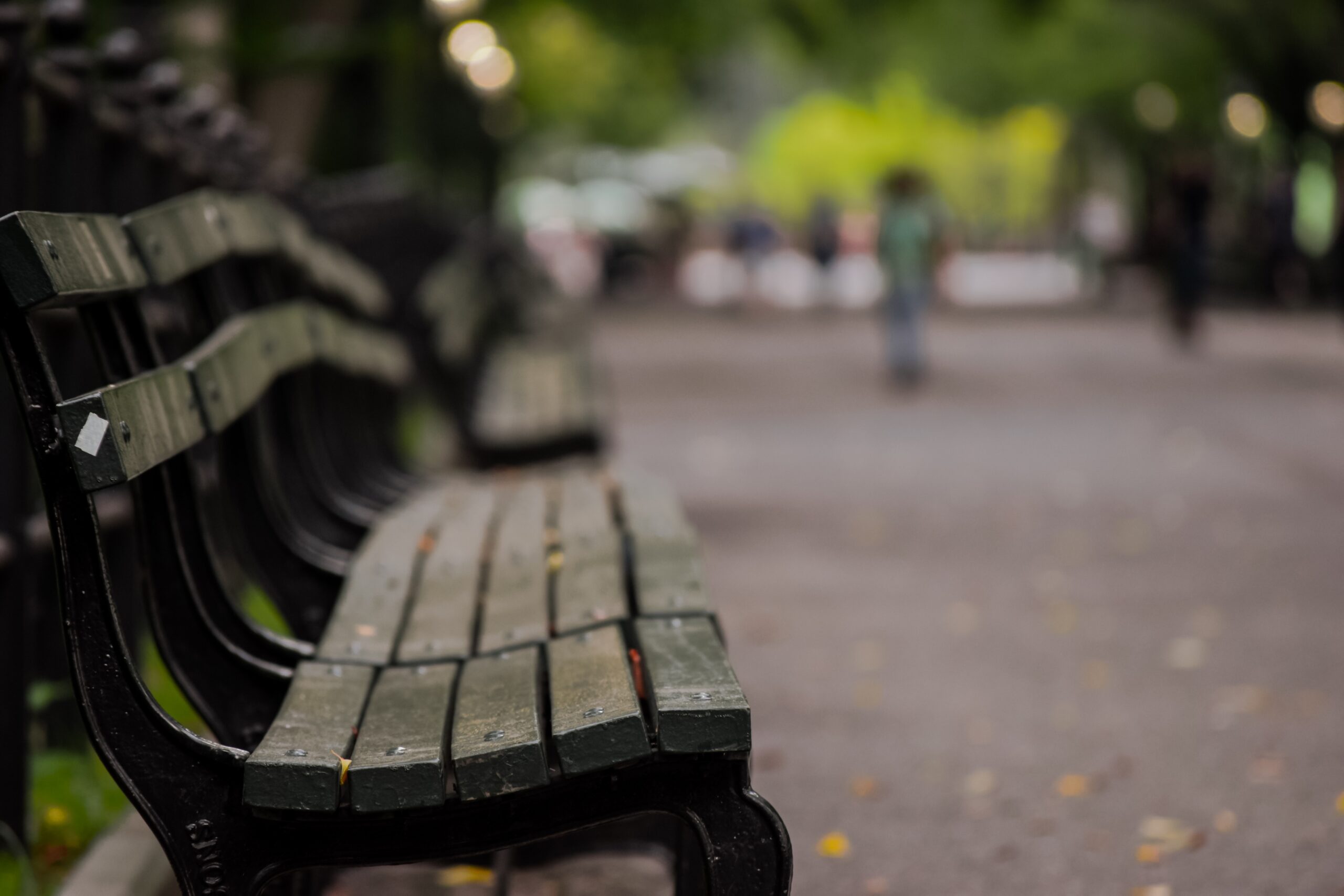JULIAN ZABALBAEASCOA’s debut novel What We Tried to Bury Grows Here is a work of narrative ingenuity and empathy, set during the Spanish Civil War and has recently been named a finalist for a Los Angeles Times Book Prize. His short stories have appeared in American Short Fiction, One Story, and Ploughshares, among other journals. In this interview, BLAKE HAMMOND and Julian Zabalbeascoa discuss writing about your heritage, riffing on your research, and empathizing with evil characters.
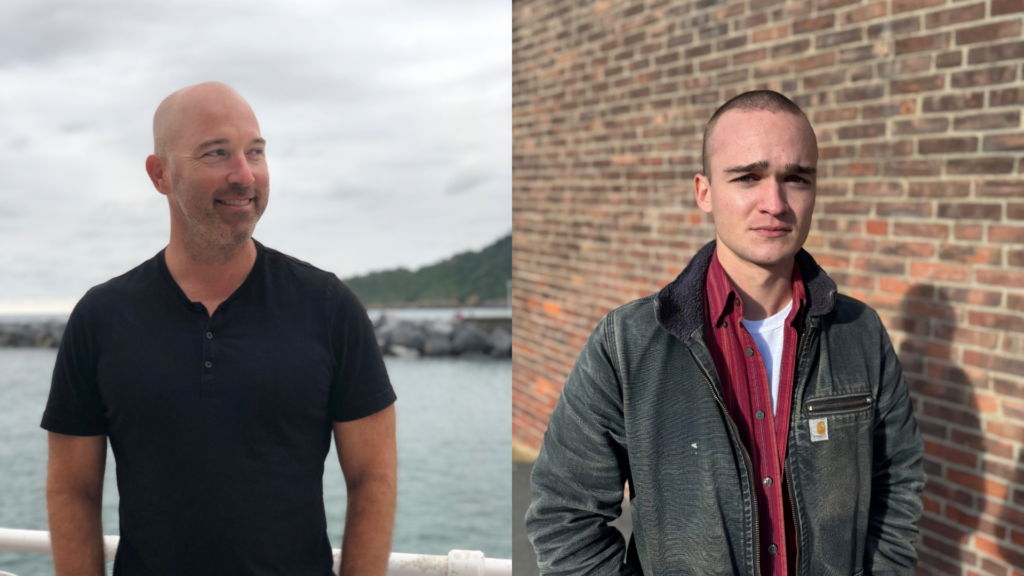
Blake Hammond: Your story “Igerilaria,” published in The Common in 2021, is about a Basque refugee, the Euskadi Ta Askatasuna attacks, and fascist Spain in the late 20th Century. When did you start writing about the Basque Country? Or has it always been a central aspect of your work?
Julian Zabalbeascoa: Since the word go, really. And then, with even greater fervor, when I was twenty and studying in the Basque Country in Spain. It was a transformative experience. As the world was opening to me, I was trying to put it on the page. My family is from the Basque Country. My father is from the Spanish side, and my mother’s family is from the French side. And I grew up in a community of Basque immigrants in the Central Valley of California. It’s a common story, I think, but, in my teen years, I was determined to get as far as possible from my hometown. But what did I end up doing? Studying in the Basque Country. Planting myself in the headwaters, the source of it all. From the frying pan into the fire. It was magical though. It was also me trying to make sense of everything—my childhood, what brought my family to America, the stories we tell ourselves, the stories that shape us, etc. I never sit down at the desk as though reclining on the therapist’s couch, but I suppose that’s what I’m unwittingly doing morning after morning on the page.
BH: You can tell Spain is a huge part of your life because the setting is so central to every chapter, especially for a country as regional as Spain. In a way, the landscape is one of the most constant characters throughout the book. Can you speak more about that regionality and your approach to writing settings and landscapes?
JZ: Few things on this planet stir my soul as much as the mist on the mountains in the Basque Country, on both sides of the border, Spain and France. It’s an ancestral feeling, I’m sure. A sort of pleasurable response that has existed longer than I have. But I also love Spain’s arid landscapes, its high plateaus, the near-forests of twisting olive trees, the stone-scraped mountain peaks found around León, the Arabic influences in architecture down south, all of it. It’s a lifelong love affair for me. So it was bound to find its way into the book. However, my characters are fighting for this land, killing and dying, and risking their moral compasses, so the land would have to be central to how they view and experience the world.
BH: With this ancestral connection, and having spent so much time there, I’m curious about your research for this book. Did any of it come from first-hand accounts you heard while in Spain?
JZ: While I’m an advocate for the powers of the imagination, it would have been very difficult for me to write this book without many of those lived experiences, which included being told anecdotes by people in Spain and the Basque Country that helped give it shape. I did a year of undergrad in the Basque Country in Spain, then attended grad school in Madrid over the course of five summers. Since 1999, I’ve been in Spain and the Basque Country at least once a year, oftentimes more. So many of those experiences, which included focused research with a clear eye of where my characters would wind up, informed the writing of this novel. The thing with research, though, is that if you’re not careful it becomes endless. It is important to step out onto the high wire before you fully test its viability. You should be a little reckless. Meaning, you should give your imagination space to dream. I’m currently studying the Spanish Civil War once again for a class I’m teaching this spring, and I’m coming across a few things I would have loved to include in the novel. This is despite having studied the war for over a decade now. But if I were going to wait to read all that can be read about the Spanish Civil War before putting the first words down, I’d still be stretching my legs behind the starting line.
I never sit down at the desk as though reclining on the therapist’s couch, but I suppose that’s what I’m unwittingly doing morning after morning on the page.”
BH: You do a great job of weaving the historical context for the war, and the political turmoil of the time into this book. How did you create such an authentic sense of urgency from a conflict so far removed from the American consciousness?
JZ: This follows that idea of research. You want to know your material and be able to internalize it, but then you should forget about much of it. Have you learned your instrument? Great, now start jamming. I knew I didn’t want these narrators to be tour guides for the Spanish Civil War. I didn’t want to bog the reader down with exposition that might deepen their understanding of the conflict but, quite possibly, slow down the narrative. I wanted to put faith in the reader that they’d meet my characters where they were, and that enough context could be created through action. I also had faith that there were recognizable elements in the conflict for today’s American reader. I began this novel in 2011. I wouldn’t have guessed then that the Venn diagram would overlap with America as much as it does now.
BH: I was interested in your decision to write from the viewpoint of characters on the fascist side of the conflict in some of these chapters. Can you talk more about that?
JZ: This war affected most everyone in society, so I strove to have diverse voices on the page. That includes fascists. To that, there’s no great sport in putting a character on the page to ridicule them or tear them down. As much as I might disagree with a character’s view of the world, it’s not my job to judge them. Instead, it’s my job as a writer to remain curious, to follow after them, transcribe what they’re telling/showing me, and keep asking questions. We’re not encouraged to show such generosity, especially not online, but I think it’s an integral quality to maintain when you’re at your desk.
BH: Was it difficult for you to inhabit those characters, the ones you don’t agree with? To try to remain neutral while getting their voice onto the page? Faustino and Juan are two fascist characters that come to mind, and even though they’re committing unspeakable acts of violence, I felt bad for them. They didn’t feel villainized.
JZ: I was recently in conversation with the writer Sebastian Stockman about my novel, and he referenced this line from the Jean Renoir film The Rules of the Game: “The awful thing about life is this: everybody has their reasons.” Part of the job of the fiction writer is to explore what those reasons might be. To withhold judgment while doing so. I have some strong, possibly even inflexible, political opinions. I likely wouldn’t have written this novel were I not so concerned about the current trajectory of the country and the world. But I’ve learned not to let those convictions drown out whatever my characters are trying to tell me. Otherwise, what would I produce? Something akin to a social media post that might fetch a few likes. But certainly nothing cousinly to literature.
BH: There are some incredibly well-written, yet horrifying, passages of violence and war in this book. But what seemed to connect everything was the theme of family, especially parental and sibling relationships. Was that an intentional throughline, or did it occur as you were writing?
JZ: It’s amazing how, in fiction, you can out yourself. Even in historical fiction! Half of this novel was written very slowly over more than a decade, while the other half was written all at once, not long after my wife and I learned we’d be having our first child. Becoming a parent was very much on my mind while working on these chapters every morning. It is also representative of the struggle playing out in the book. You have those fighting for a positive vision of tomorrow, who want a better and more just—and therefore a more secure—world for their children to live in. Meanwhile, they’re at war against reactionaries of various stripes, those determined to return the country to a past they can recognize and feel secure in. They likely believe their children will, as well. And so the fight goes on for another day.
BH: That positive vision of tomorrow gives the book an admirable overtone of hope, which was moving for a story that is also so filled with terror. Out of all this tension between hope and fear, right and left, family and war, what do you want readers to take away from this book?
JZ: In the end, hope. But, along the way, visceral glimpses of the terror? Is that something you can want for the reader (even though life has a surplus of it and dishes it out disproportionately and at random)? If so, first, the terror: Spain’s fate in the 1930’s need not be ours. We still have time. We can give in to the algorithms and the demagogues, blame our fellow citizens for all the ills we feel are before us, and remain constantly outraged, but what will happen then? We’ll ultimately become irrevocably divorced from each other, leading half the country to fully embrace an authoritarian’s agenda. Ours remains a democracy, and a democracy requires us to maintain conversations with those we agree with, those we don’t, and those who’ve tuned out for all sorts of reasons. When we stop talking to one another, when we subscribe wholesale to the us vs. them narrative, when only cultural and ideological hegemony can save the country, then we will begin to hear, as Twain warned, history rhyming. Now for the hope: those fighting in Spain against the fascist-backed Nationalist Movement stood under all sorts of flags. In the novel, I tend to focus on those fighting to defend the Second Republic. The odds were against them from the start. The world’s democracies had abandoned them. Meanwhile, the insurrectionists had the backing of Nazi Germany and fascist Italy. Despite being outmatched and suffering one loss after another, they maintained hope and continued fighting to realize it in their world. I believe that we are in urgent need of that sort of hope and resiliency.
Few things on this planet stir my soul as much as the mist on the mountains in the Basque Country, on both sides of the border, Spain and France. It’s an ancestral feeling, I’m sure. ”
BH: Many of these chapters have been published as stand-alone short stories, and this book functions as both a novel and a collection of short stories. At what point did you realize that you had a novel on your hands? Were you thinking of it as a collection, or a novel, or just writing?
JZ: Six of one, half dozen the other. There was a time when I was trying to have the novel be a thing it was not. The Great Basque American Multi-Generational Novel. Once I abandoned that track and focused solely on the Spanish Civil War, I refused to put any guardrails on the novel, the shape it would take, and how it might even be classified. Not pragmatic for the marketplace but necessary to invite some generosity from the muses. So whichever narrator was speaking to me, whichever image wouldn’t leave me alone, whatever the murky subconscious was trying to bring forward, I’d abandon myself to it. I’d glance at the structure the novel was beginning to take, but I tried not to let that dictate much. Just as I’d blindly follow a character to a chapter’s denouement, having faith all the while I was heading…somewhere, the same was the case with the overall structure of the novel. I had faith it would all coalesce into a unified shape. Now, having said that, after all that dreaming on the page was through, my heady waking self shouldered in and began barking orders. Such is the revision process. Gone is the mystic communing with the subconscious or collective unconscious. In comes the cold, calculating, and merciless logician. I also had the immeasurable great fortune to fall in love with an incredible fiction editor: Katie Sticca, the Managing and Fiction Editor of Salamander. The novel wouldn’t be what it is without her careful reads and notes that filled up all the margins.
BH: Speaking of your editing process, I was curious about revising a novel with this structure, with each chapter giving us a new voice. Some characters appear and then reappear later, and some only appear once, with Isidro in the center. Was it harder to deepen Isidro’s character? Were there characters who appeared in drafts that you felt deserved their own stories?
JZ: There were some challenges along the way, most certainly. Plenty of reverse engineering. Each narrator will experience a sort of narrative arc in their respective chapters, but throughout all these, there is the character of Isidro, and even Mariana, who experience a larger and longer arc. Isidro has an unquenchable thirst for life, and a deep and constantly present appreciation for the flightiness of time and the brevity of our lives, so some of the narrators might be able to appreciate that we’re following him throughout the novel. But I’m willing to wager that if you asked the other narrators, they’d tell you their experiences constitute the authoritative story of the Spanish Civil War and that Isidro played a small, sometimes meaningful, part in it. The world, as we experience it, tends to feel like it’s spinning around us as its primary axle. So I had to honor that feeling while also, adding new textures to Isidro and Mariana’s storylines. As for the second part of the question, sometimes a character required their own chapter. Xabier’s, Isidro’s brother’schapter was one of the last I wrote, as I felt that people’s thoughts and memories of him made him a touch one-dimensional. He seems to be everybody’s martyr, so he requires his own chapter to demonstrate to the reader that he is just as conflicted and ego-driven as all the rest of us. But by and large, when a character does reappear, they do so as quickly-glimpsed shadows. I’m hoping there’s some fun for readers in identifying them when they brush a scene’s periphery.
BH: What books and authors inspired you as you wrote this novel?
JZ: The novel was written over thirteen years. So the bibliography would go on for pages. But the two biggies for me when I was carried off on an eight-week writing sprint in which I wrote half this novel, would be the work of Svetlana Alexievich and Irish fiction writ large. I dedicated a couple of chapters to Svetlana Alexievich. She won the Nobel Prize in Literature nine years ago for her oral histories of the Soviet Union and Russia. Anything with her name on it, pick it up. It’s oftentimes brutal. Secondhand Time stands alongside Part IV of 2666 as the most violent and visceral series of pages I’ve ever read. But it’s also shot through with humor and great wisdom and many people who, despite their circumstances, continue putting one foot in front of the other. Her work made me realize I could write a novel populated with voices. Mine has twenty chapters, and each chapter is told by a different narrator. It was Svetlana Alexievich who permitted me to pursue that. As for the Irish, they constitute a large part of what I’ve been reading since 2020. I’ve been beating this drum since that seismic year, but the island of Ireland is producing some of the most exciting and dynamic literature of our times. It’s not even a pound-for-pound thing. They can enter the ring against any country, no matter the size, and have their opponent on the mat before the bell ends the first round.
Blake Hammond is an MFA student at SNHU’s Mountainview MFA program. His work was a finalist in the Salamander2024 Fiction Contest, and has been published in Mulberry Literary.
Julian Zabalbeascoa’s debut novel What We Tried to Bury Grows Here was published this November by Two Dollar Radio. Among other journals, his short stories have appeared in American Short Fiction, Boulevard, The Common,Electric Literature, Glimmer Train, Gettysburg Review, One Story, and Ploughshares. He teaches in the Honors College at the University of Massachusetts Lowell.


